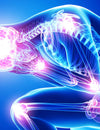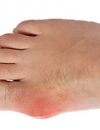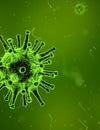
With its sweet, earthy taste and ruby-red interior, beetroot is a favourite of foodies, but there’s far more to it than that. Roger Dobson explains how the secret weapon of sports stars increase fitness and can help stave off cancer...
Hale and Hearty
The majority of beetroots benefits stem from the unusually high levels of nitrates it contains – gram for gram it possesses about 20 times more than most other vegetables.
Nitrates have suffered a bad reputation because of their use as a food additive. Animal experiments had linked their commercial use to cancer and in the Sixties the World Health Organisation set upper limits on their use. However, recent studies have shown that nitrates in beetroot lower blood pressure.
A 2010 study carried out by Queen Mary’s University in London found that drinking just one 250ml glass of beetroot juice a day dramatically lowered blood pressure for several hours. It also found that the higher the blood pressure, the greater the drop observed.
A new study carried out by the Baker Heart and Diabetics Institute in Melbourne, Australia, found that a 500ml glass of the juice led to a significant drop in blood pressure after 6 hours. If beetroot juice was consumed widely, researchers say we could see a ten per cent reduction in death from cardiovascular disease.
Nitrates lower blood pressure because bacteria in the mouth and gut convert into gas nitric oxide, which relaxes and widens the blood vessels, allowing blood to circulate more freely.
Athlete’s Choice
Studies carried out by the University of Exeter have shown that nitrates not only lower blood pressure but improve stamina too.
A 2010 study found that adults who drank 500ml of the juice a day could exercise 16 per cent longer than those given a drink supplement with nitrates removed.
‘Nitrates work in synergy with the other antioxidants that beetroot contains to reduce the oxygen needed by the muscles’, says Stephen Bailey, who worked on the study. ‘This enables tham the work more efficiently and slows fatigue.’
Indeed, disabled athlete David Weir put some of his gold medal winning success at the London Paralympics last summer down to regular intake of beetroot juice. England rugby player Ben Foden as well as marathon runner Helen Davies also rate the drink as a great endurance booster.
Brain Booster
A 2011 study carried out by Wake Forest University in North Carolina found beetroot may slow the progression of dementia. It is thought this because nitric oxide boosts blood flow to the brain. Beetroots high folic acid content – approximately per cent of yur daily recommended daily allowance (RDA) in just 2 or 3 small beetroots – may also play a role as previous research has suggested the nutrient protects against Alzeimer’s.
Fighting Cancer
Betacyanin, the pigment that gives beetroot its rich hue, is a powerful antioxidant that has shown to possess anti-cancer properties. In 2011, a study carried out by Howard University in Washington, USA, found that betacyanin slowed tumour growth by 12.5 per cent when exposed to prostate and breast cancer cells. More research needs to be carried out to see if consuming beetroot would have a similar anti-cancer effect.
High in Fibre
Nutritional therapist Dr Elisabeth Phillips recommends the vegetable for digestive troubles. ‘Beetroot is high in fibre and a 100g portion – about two or three small beetroot – contains ten per cent of your RDA, which helps regulate bowel movements’, she says. ‘It also contains a substance called betaine which normalises stomach acid secretion.’
The compound increases acid levels in the stomach if you do not have enough and acts as an anacid if you are producing too much. ‘Beetroot supports the liver too’, she adds, ‘Antioxidants vulgaxanthin, betalain and betanin promote the production of glutathione, a substance that helps the liver process toxins.’
In the Pink
Between 10 an d 14 per cent of the population experience the phenomenon known as beeturia – when the urine turns pink – after eating beetroot. It usually occurs when a person consumes a large quantity.
‘It isn’t fully understood why this occurs although it has been linked to anaemia,’ says Dr Phillips. ‘If your urine only changes in colour when you eat beetroot, it is nothing to be concerned about.’
Mail on Sunday, Health - March 10th 2013




